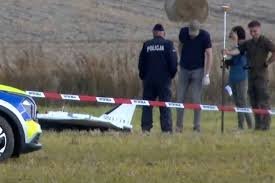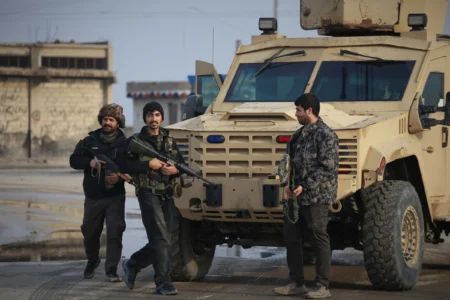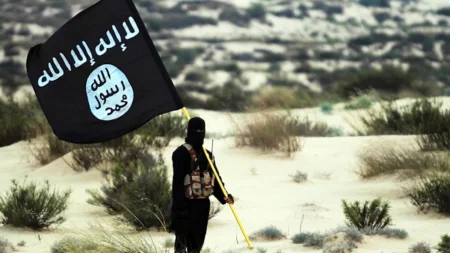Canada is standing firmly with its NATO allies after Poland reported that Russian drones violated its airspace during a series of overnight strikes. Foreign Affairs Minister Anita Anand condemned the breach as a dangerous act of aggression and a sign of Moscow’s unwillingness to seek peace.
Poland’s military confirmed that multiple Russian drones crossed into its territory over several hours, triggering alarm in Warsaw and among NATO members. The drones were intercepted and destroyed with the assistance of allied forces. Officials in Poland described the airspace breach as an “act of aggression” carried out amid a wave of Russian drone attacks targeting Ukraine.
Anand responded swiftly, stating on social media that Canada views the incident as “another horrendous example” of Russian President Vladimir Putin’s refusal to end his illegal war on Ukraine. She emphasized Ottawa’s solidarity with both Poland and Ukraine, stressing that Canada will continue to back its allies in the face of Russian escalation. “Canada stands in solidarity with Poland and Ukraine,” Anand wrote, adding that the repeated violations of NATO borders highlight the broader threat posed by Moscow.
The incident has heightened concerns in Europe, as NATO allies convene to discuss the implications. Poland formally triggered consultations under the alliance framework, a step reserved for situations that threaten member states’ security. While not equivalent to Article 5, which treats an attack on one member as an attack on all, the consultations underline the seriousness of the breach. European leaders have echoed Poland’s stance, calling the drone incursion a deliberate provocation and a dangerous escalation of Russia’s war against Ukraine.
Moscow has denied that it targeted Poland, insisting its attacks were confined to Ukrainian territory. Belarus, one of Russia’s closest allies, claimed some drones “lost their course” because of signal jamming and accidentally crossed into Polish airspace. That explanation has been met with skepticism by NATO leaders, many of whom view the violation as part of a pattern of intimidation designed to test the alliance’s resolve.
The incident underscores growing fears that the war in Ukraine could spill over into NATO territory, drawing the alliance more directly into the conflict. Since Russia launched its full-scale invasion in 2022, Poland has been one of Ukraine’s most vocal supporters, providing military aid, logistical support, and serving as a critical hub for Western weapons shipments. Any direct Russian aggression against Poland carries the risk of triggering NATO’s collective defense commitments, a scenario that both Washington and Brussels have sought to avoid.
For Canada, the drone incursion is a reminder of the importance of transatlantic unity. Ottawa has already deployed troops to NATO’s eastern flank, participates in air policing missions, and provides ongoing military and financial aid to Ukraine. Anand reiterated that Canada will continue to pressure Moscow diplomatically and economically, while also supporting Ukraine’s defense against Russian aggression.
The breach comes at a time when Russia has intensified drone and missile strikes across Ukraine, targeting energy infrastructure, urban centers, and military positions. Ukrainian officials say these attacks are designed to exhaust their air defenses and terrorize civilians ahead of the winter months. Western analysts warn that the continued use of drones near NATO borders is part of a deliberate strategy by the Kremlin to destabilize the region and test the alliance’s readiness.
As NATO leaders deliberate next steps, Canada’s commitment to Poland and Ukraine remains clear. By condemning the violation of NATO airspace, Ottawa is signaling that such provocations will not go unanswered. With the alliance united in its support, Poland has vowed to remain vigilant and strengthen its defenses against further intrusions. The latest incursion by Russian drones into NATO airspace highlights the precarious balance in Europe, where the war in Ukraine continues to threaten regional and global security.







